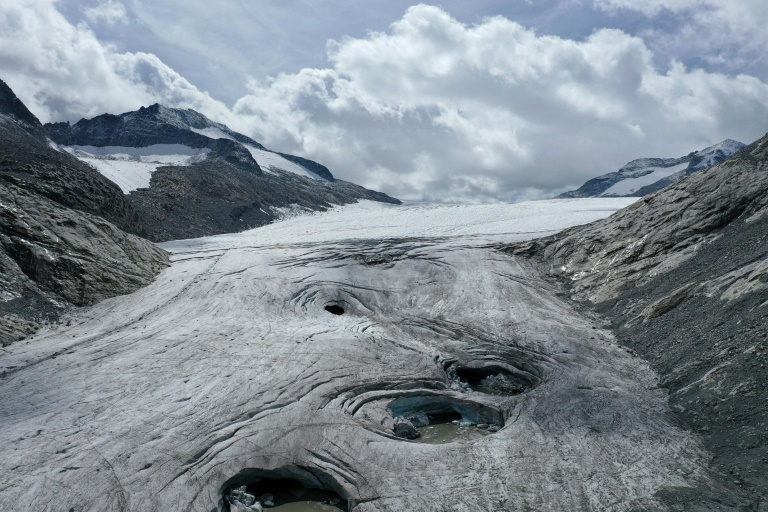Science
Wildfires Accelerate Snowmelt in Burned Forests, New Study Finds

Snowmelt in forests that have experienced wildfires occurs significantly faster than in unburned forests, according to a recent study from the Colorado School of Mines. This accelerated melting poses serious implications for water supply in regions reliant on snowpacks, particularly as climate change continues to influence weather patterns.
Mountain snowpacks are essential for replenishing aquifers and maintaining streamflow during drier months. However, human-induced environmental changes, particularly wildfires, are disrupting this natural cycle. The study highlights that wildfires, which are increasingly frequent and intense due to climate change, result in darker snow that absorbs more energy from the sun, leading to quicker melting.
Impacts of Climate Change on Snowmelt
The research reveals that snow in burned forests melts more rapidly due to two key factors. First, the post-fire landscape has less tree cover, allowing more sunlight to reach the snowpack. Second, the soot and debris left by wildfires make the snow darker and less reflective, further increasing its temperature and hastening the melt.
Additionally, climate change contributes to variability in snow sensitivity. Warmer winter air temperatures can lead to snowpacks with higher cold content, defined as the energy required to melt the snow. This results in a heightened energy threshold needed for melting, complicating water management for communities in affected areas.
The Pacific Northwest and Northern Sierra Nevada are particularly vulnerable to these changes. As climate warming alters snow accumulation and melt patterns, communities in lower elevation regions may struggle to manage their water resources effectively. The study utilized snow data from NASA’s Moderate Resolution Imaging Spectroradiometer (MODIS), offering a comprehensive analysis of post-fire snow cover dynamics.
Future Projections and Research Findings
The findings indicate that 98 percent of forested areas in the western United States can expect earlier snowmelt following wildfires. As average temperatures rise, the situation worsens. With an anticipated increase of 2°C, a scenario linked to ongoing climate change, approximately 86 percent of the snow zone would experience earlier melting compared to historical averages.
Published in the journal Science Advances, the study titled “Impact of current and warmer climate conditions on snow cover loss in burned forests” underscores the urgent need for adaptive water management strategies in wildfire-affected regions.
As communities grapple with these challenges, understanding the interaction between wildfire dynamics and snowmelt is crucial. The implications of this research extend beyond ecological concerns, touching on the livelihoods of those dependent on reliable water sources for agriculture, industry, and daily life.
This study serves as a critical reminder of the interconnectedness of climate change, natural resources, and community resilience. Addressing these challenges will require collective efforts across sectors to mitigate the impacts of wildfires and adapt to a changing climate.
-

 Science2 months ago
Science2 months agoToyoake City Proposes Daily Two-Hour Smartphone Use Limit
-

 Health2 months ago
Health2 months agoB.C. Review Reveals Urgent Need for Rare-Disease Drug Reforms
-

 Top Stories2 months ago
Top Stories2 months agoPedestrian Fatally Injured in Esquimalt Collision on August 14
-

 Technology2 months ago
Technology2 months agoDark Adventure Game “Bye Sweet Carole” Set for October Release
-

 World2 months ago
World2 months agoJimmy Lai’s Defense Challenges Charges Under National Security Law
-

 Technology2 months ago
Technology2 months agoKonami Revives Iconic Metal Gear Solid Delta Ahead of Release
-

 Technology2 months ago
Technology2 months agoSnapmaker U1 Color 3D Printer Redefines Speed and Sustainability
-

 Technology2 months ago
Technology2 months agoAION Folding Knife: Redefining EDC Design with Premium Materials
-

 Technology2 months ago
Technology2 months agoSolve Today’s Wordle Challenge: Hints and Answer for August 19
-

 Business2 months ago
Business2 months agoGordon Murray Automotive Unveils S1 LM and Le Mans GTR at Monterey
-

 Lifestyle2 months ago
Lifestyle2 months agoVictoria’s Pop-Up Shop Shines Light on B.C.’s Wolf Cull
-

 Technology2 months ago
Technology2 months agoApple Expands Self-Service Repair Program to Canada









